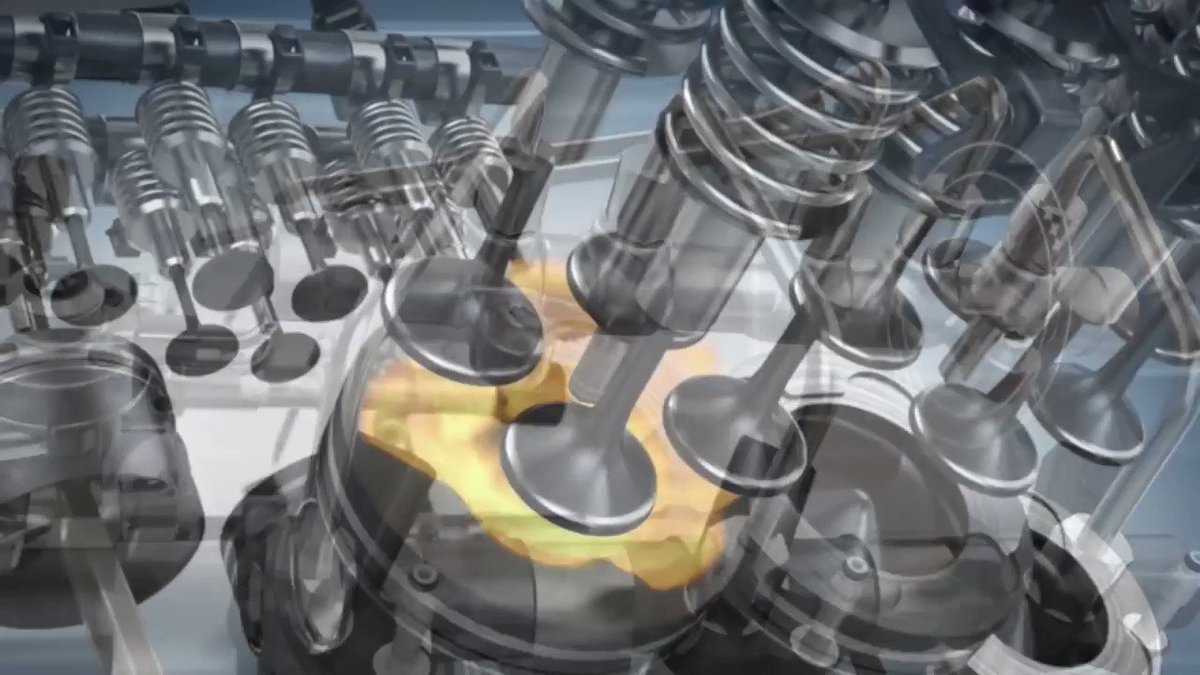However, temperature can not be the only factor involved either. The hydrogen turbopump on the Space Shuttle Main Engine only operates at 1,310 °F, 710 °C, and turbopumps for rocket engines are a primary limiting factor in rocket engine longevity.
Still, the SSME hydrogen turbopump is still a type of turbomachinery and the longevity extension mentioned above known to hold with turbomachinery in general will still apply to it: derating its power level by a small relatively small percentage will result in a quite large increase in longevity.
Note an intriguing possibility also exists. The increase in longevity is actually in regards to turbomachinery specific power , that is power per weight. Note for example diesel engines are quite ruggedly built. So rather than derating the engine to, say, 60% power we could ruggedize it, i.e., using thicker, heavier components, increasing weight by ~50% to achieve the same reduction of specific power to 60% while keeping the same power level.
Fast ramp up to full power as cause of shortened longevity.
There is another interesting fact in that passage I cited on jet engine longevity: Once a turbine engine has been shut down, usually it needs to cool down before restarting, depending on power levels prior to shut down. Cooling down can be done at ground idle power setting. Turbine engines generally don't like to be shut down straight from take-off power. They also require warming up before slamming to take-off power.
STS-134 - The final launch of Endeavour - Full Launch in HD.
VIDEO
At about the 9:52 point the video shows the thrust level of the SSME goes from 0% thrust at T minus 7 seconds to 100% thrust at T minus 2 seconds, i.e., in only 5 seconds.
For jet engines, it is known such rapid changes are detrimental to engine longevity. It is quite likely the same is true for rocket engines. But for turbopump rocket engines you need almost immediate ramp up to the safe 60% to 100% throttle range.
It's not known if staged combustion engines such as the SSME, RD-180 or Raptor can be run in idle mode. Given the potential of having such high performance engines have reuse lifetimes measuring in the thousands, I think it is a possibility that should be explored. A couple of possible ways need to be explored as possible ways of accomplishing it: one, the propellant could be allowed to flow through the turbopumps to the engine but the turbos being locked so they don't operate. And two, different piping being installed so that the turbos could be bypassed entirely if desired and the propellant go directly to the engines.
Another possibility is that there are turbopump engines that can run at highly reduced throttle level, to below 10% throttle for example. One such is the Common Extensible Cryogenic Engine(CECE), variant of the famous RL10 engine. These engines operate on a lower power engine cycle however known as the expander-cycle. Rather than using preburners to run their turbopumps as do gas-generator and staged-combustion engines, they run their turbos on the heat produced from the hydrogen run through the engine cooling channels. It may be possible to get higher power gas-generator and staged-combustion engines to run in a low power mode by adding additional piping to bypass the preburners, sending the hydrogen from the cooling channel directly to the turbopumps. Temperature variations as cause of longevity reduction. I'm informed by someone in the industry of another cause reducing rocket engine longevity: temperature variations across the combustion chamber causing differential thermal expansion.
This is primarily because of the high temperature in the combustion chamber at thousands of degrees compared to the low temperatures in the cooling channels at hundreds of degrees. If this is a problem of steady-state operation, i.e., not an issue of temperature ramp up speed, then it would seem to be the only solution would be operating the engine at lower temperature.
typically rocket engines operate ca. 3,000 °C, whereas jet engines might only operate at ca. 1,200 °C to 1,500 °C. This can not be the only issue with rocket engine longevity as we saw as the relatively low temperatures turbopumps operate at shows. Still, it could be an issue with combustion chambers. There is a way to run rocket engines at the lower temperatures for most of the time of the flight. For rocket engines at near vacuum which is most of the flight, to get high performance, high Isp, what's really important is high expansion ratio. You don't really need high chamber pressure and the associated high temperature then.
I have argued that multiple lines of evidence suggest SpaceX throttled down the Raptor on the second and third test flights to improve reliability: Did SpaceX throttle down the booster engines on the IFT-2 test launch to prevent engine failures?
https://exoscientist.blogspot.com/2023/12/did-spacex-throttle-down-booster.html
SpaceX should withdraw its application for the Starship as an Artemis lunar lander, Page 2: The Raptor is an unreliable engine.
https://exoscientist.blogspot.com/2023/12/spacex-should-withdraw-its-application.html
SpaceX should withdraw its application for the Starship as an Artemis lunar lander, Page 3: Starship has radically reduced capability than promised.
https://exoscientist.blogspot.com/2024/04/spacex-should-withdraw-its-application.html






No comments:
Post a Comment